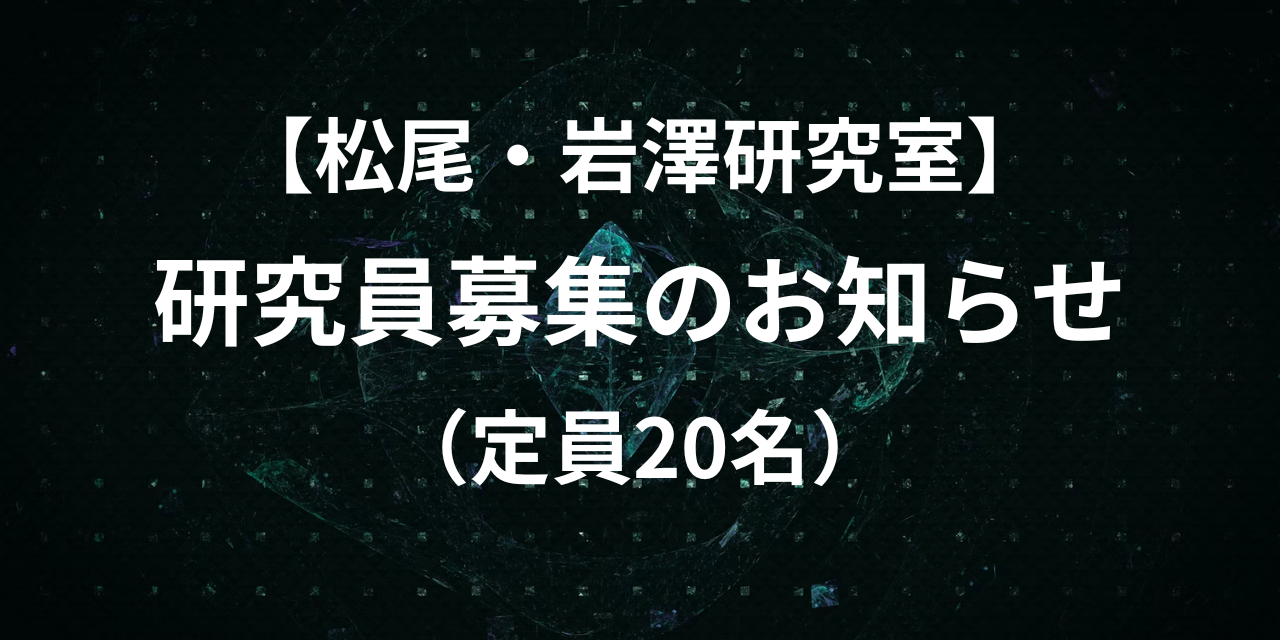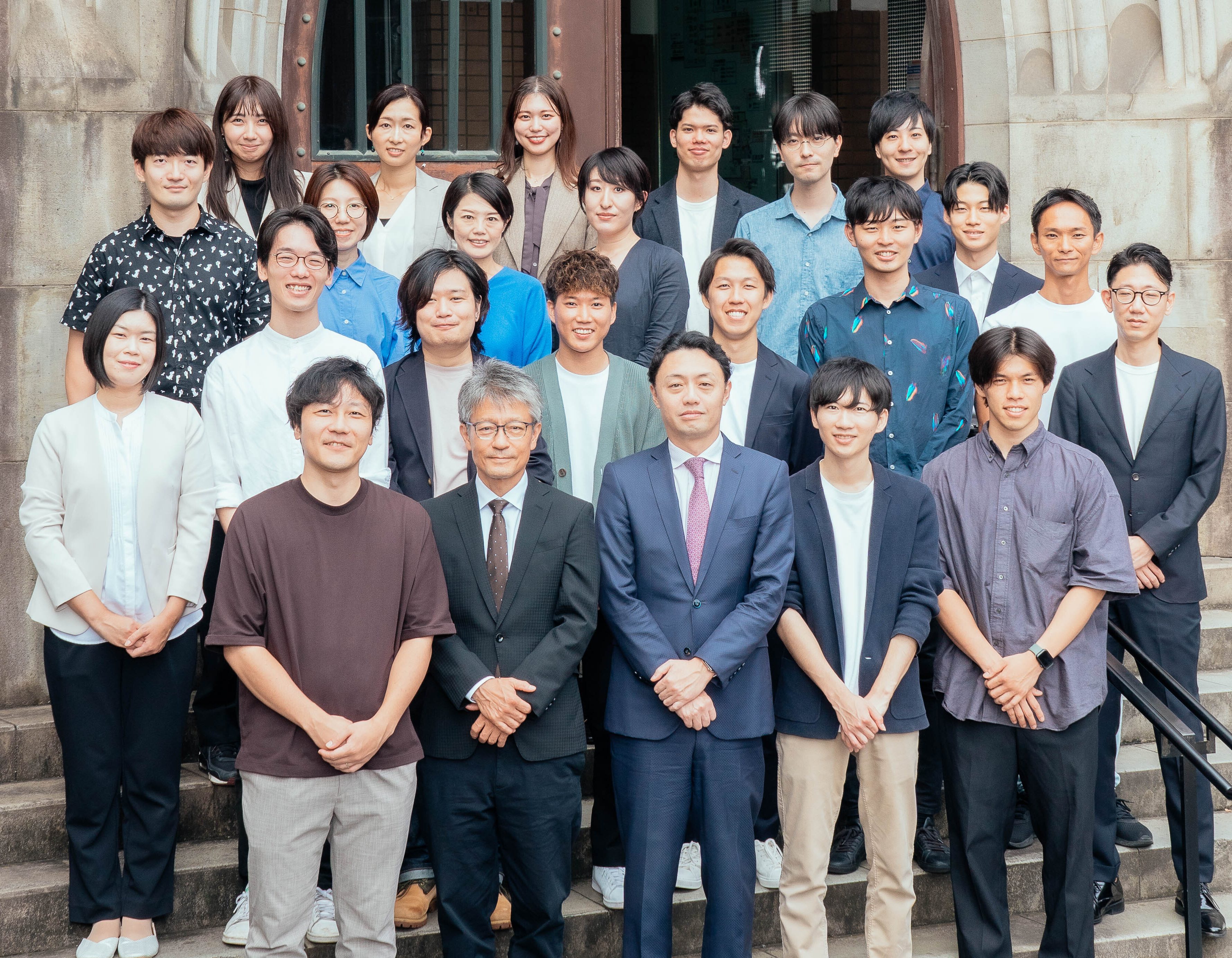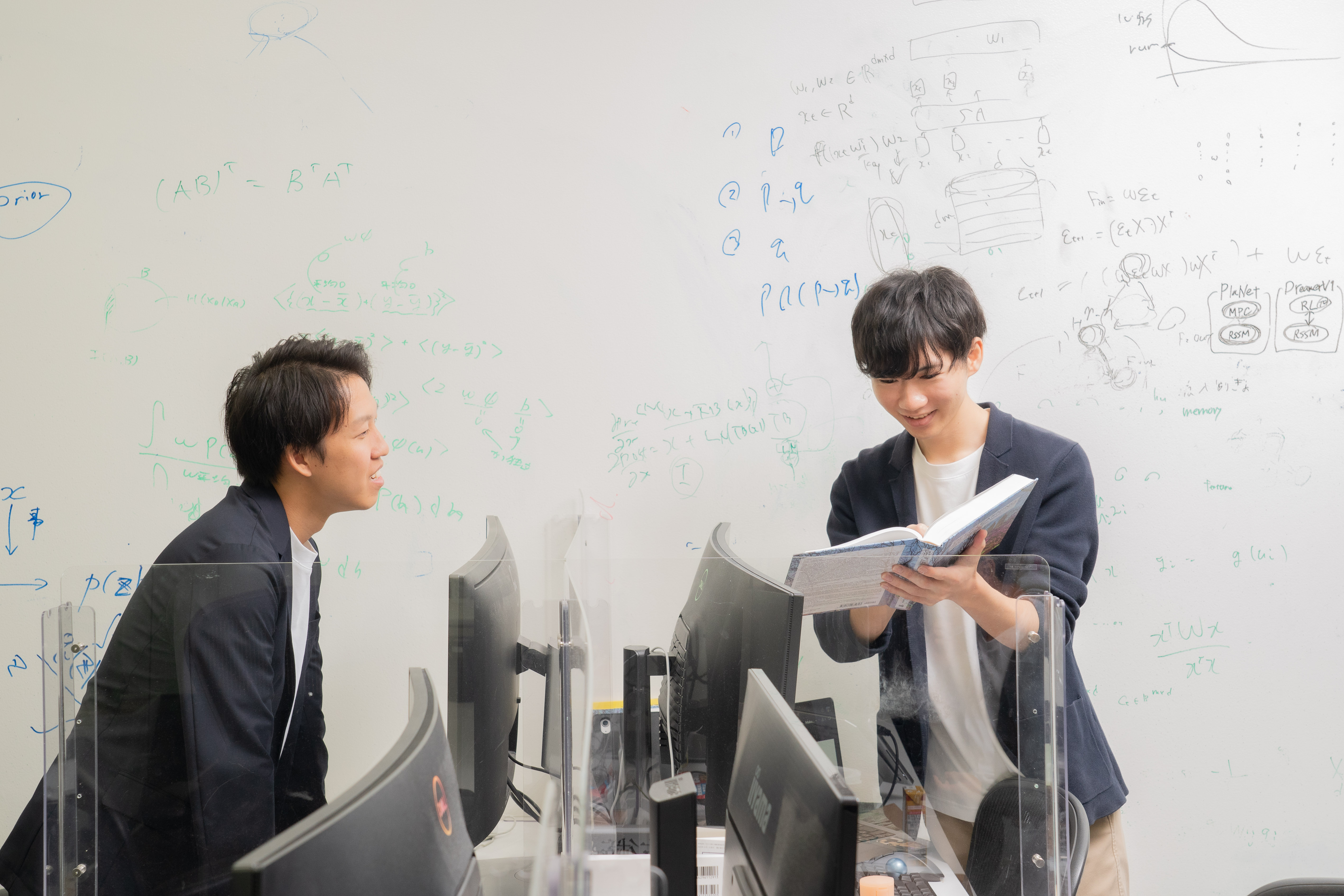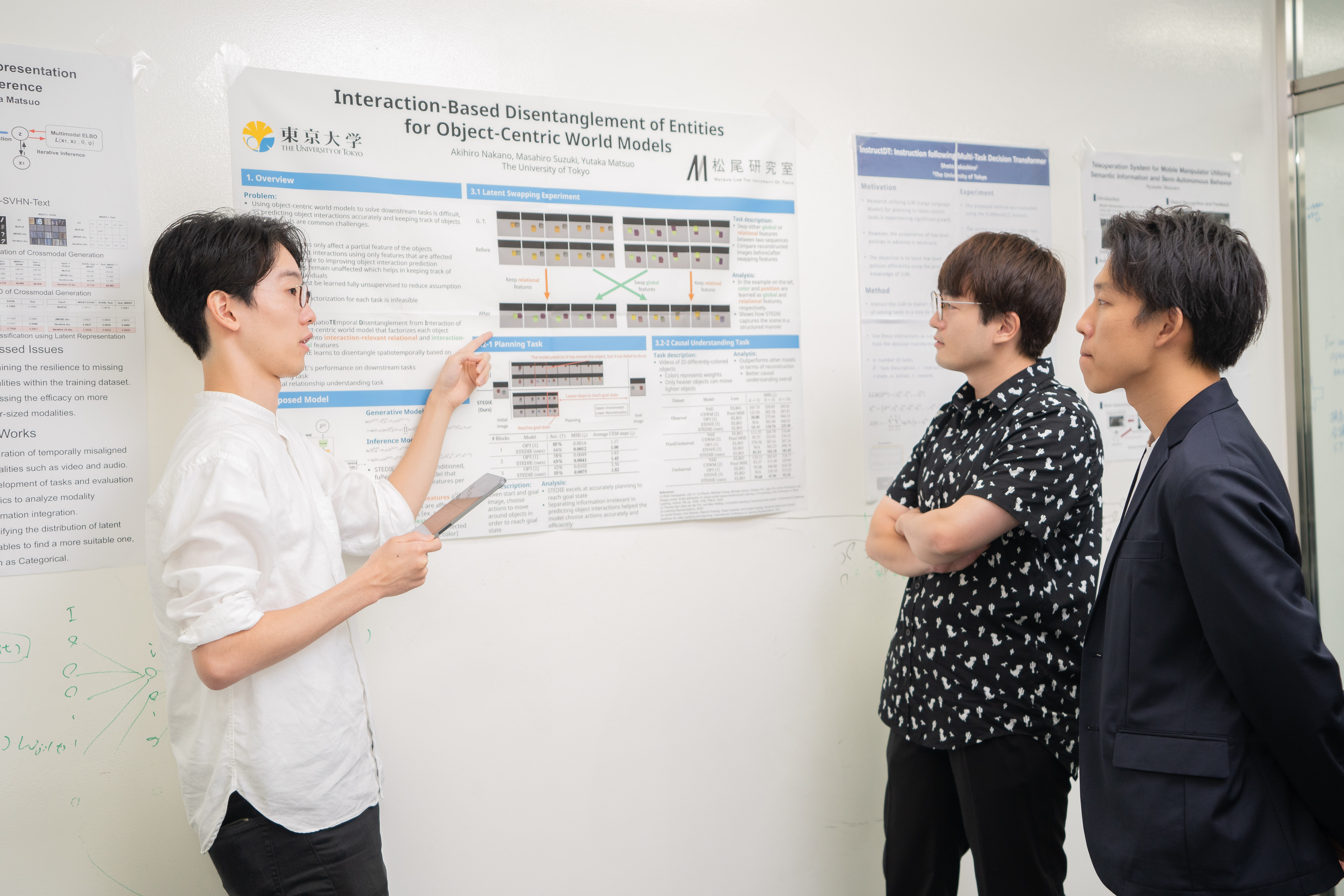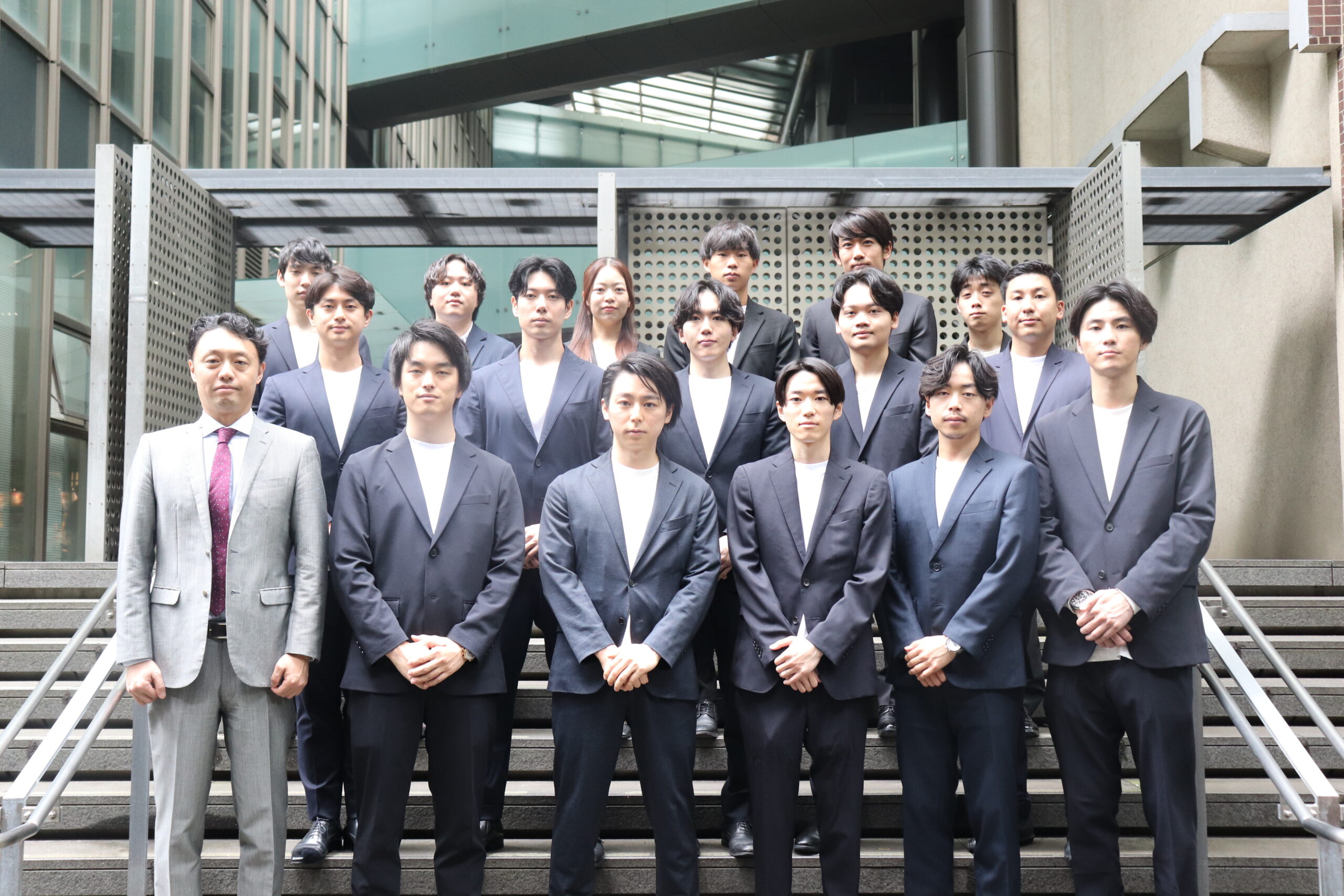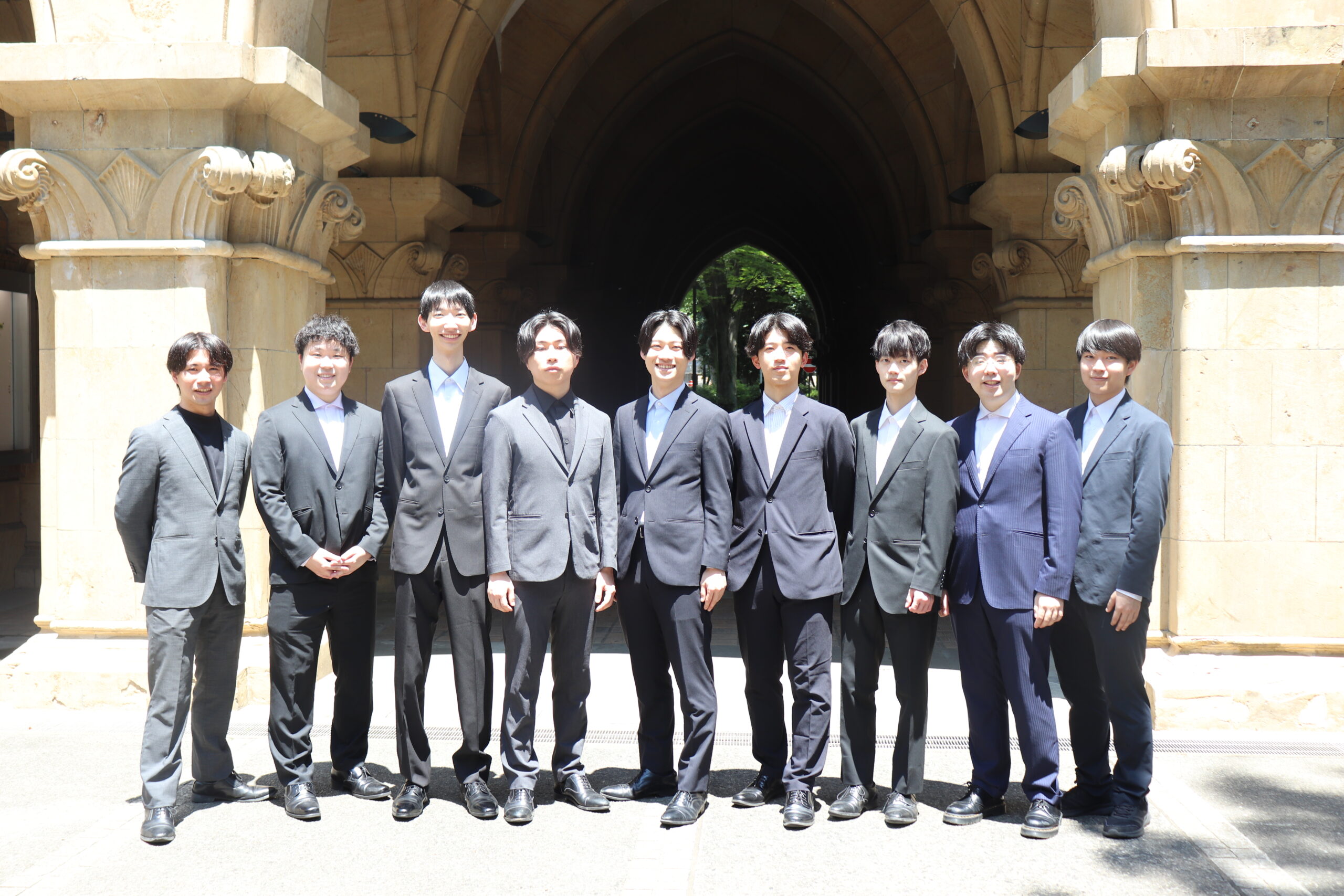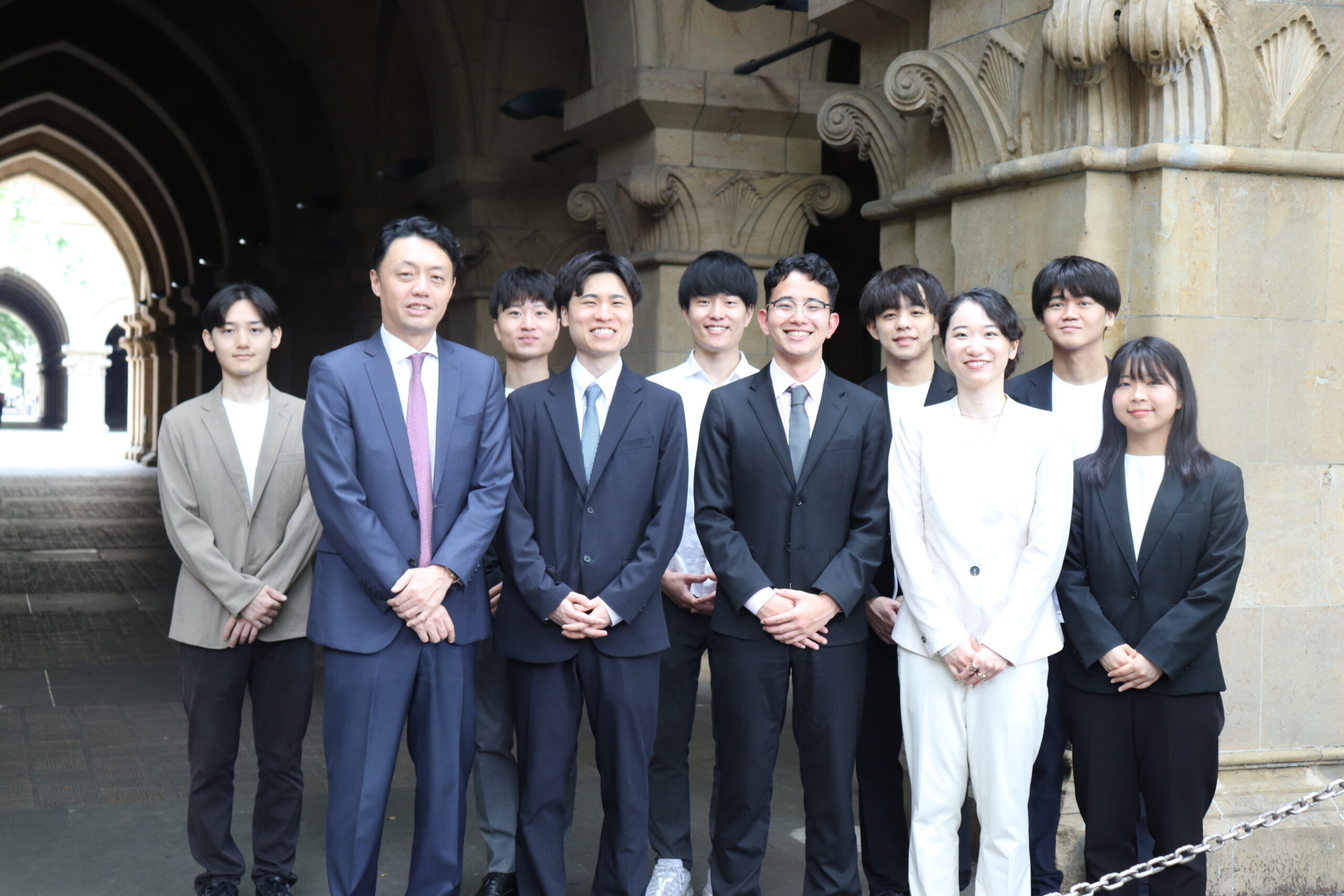■ 松尾・岩澤研究室について
松尾・岩澤研では,これまで深層生成モデルや深層強化学習といった基礎アルゴリズムの開発,画像認識,自然言語処理,ロボティクスに関する研究,それらの技術的コアになる世界モデルに関する研究などの研究を行ってきました.現在はフルタイムの研究員の数も10名を超え,2023年度にはICML,ICLR,EMNLP,NAACL,ICRAなどのトップ会議,トップジャーナルに合わせて14本の論文が採択されています.(最近の採択論文一覧はこちら).最近ではBrain-Inspired Intelligenceチームも発足し,深層学習の限界を根本的に解消することを目指した研究開発も行っています.
■ 募集背景
現在も1つの研究室としては非常に多くの研究者が在籍していますが,より大きなインパクトのある成果を出すために,今回20名の研究員を新たに採用することを決定しました.現在は大きく1) 世界モデル(深層生成モデル,深層強化学習,マルチモーダル学習など),2)ロボティクス,3) 大規模言語モデル,4) 社会実証,5)Brain-Inspired Intelligenceといった研究ユニットがあります.これらの研究テーマに合致する人はもちろん,これに縛られず,知能を創るための基礎研究,それらの成果や技術の進展をロボティクスや自然言語処理などに活用することで大きなブレークスルーを起こしていくことにチャレンジしたい幅広いバックグラウンドを持つ方の応募をお待ちしております.
【募集概要】
- 職種 / 募集ポジション:特任研究員,特任助教,特任講師,特任准教授
- 形態:正職員
- 募集人数:20名
- 報酬:
- 600万円〜1,440万円
- 勤務地:国立大学法人 東京大学 工学系研究科 松尾研究室 東京都文京区本郷7-3-1 工学部2号館(リモート可)
- 応募資格(必須):
- 博士の学位を有する方 または 博士の学位を25年3月時点で取得する見込のある方
- 機械学習に関する研究・論文執筆経験
- PyTorch, TensorFlow, JAX等の深層学習ライブラリの利用経験
- (特任助教・特任講師・特任准教授については下記も必須といたします)
- 関連分野のトップ国際会議(下記は例)での主著論文を含む研究業績
- 機械学習基礎:ICLR, ICML, NeurIPS
- 言語系:ACL, NAACL, EMNLP
- 画像系:CVPR, ECCV, ICCV
- ロボティクス:IROS, ICRA, RSS, CoRL
- 関連分野のトップ国際会議(下記は例)での主著論文を含む研究業績
- 研究環境:
- 講義運営専任チームや秘書10名体制により研究/指導に集中できる環境を用意しています
- 研究経費は研究室負担です
- PC・書籍・出張/学会参加費(海外含む)
- 計算機資源(オンプレ環境に加えて,ABCI,Wisteria/BDEC-01, SQUID)
- ロボット(HSR,Sawyer,XArm7など合計17台のロボット)
- 学生インターン給与等
- 講義運営専任チームや秘書10名体制により研究/指導に集中できる環境を用意しています
- 選考プロセス:
- 書類選考→面接(オンライン・2回程度 ※研究テーマ議論含む)→リファレンスチェック+松尾との最終面接(オンライン)→合否連絡

■ 各領域での活動例
-
-
- 世界モデル (World Model)
- 深層学習を用いて実世界をモデル化し,外界の表現を推論したり将来を予測する世界モデルの研究に取り組んでいます.本研究室では,複数の物体が存在する環境下でそれらの相互関係を理解して予測する世界モデルの開発や,世界モデルの大規模化などの研究を進めています.また,世界モデルを扱う上で肝となる時間の扱いに関する研究も行っています.
- また,世界モデルを実現する上で従来の誤差逆伝播法に基づく学習方Brain-Inspired法を超えて,より人間の脳に近い並列実行が可能な深層学習の学習アルゴリズムの開発も目指しています.具体的には,エネルギーベースモデルに基づくbackprop-freeな学習方法や,Strong Lottery Ticket Hypothesisに基づくネットワーク内の良い部分構造探索に関する研究などを行っています.
- ロボティクス
- 実世界のロボットやシミュレータを利用して集めた大規模なデータ(オフラインデータ)を使った模倣学習・強化学習によるロボット制御の大規模モデルの学習や,基盤モデルの活用によって家庭環境などタスクや環境の多様性が大きく,器用な認識と動作を求められる問題設定で,汎用性の高いロボットシステムの実現に向けた研究を行っています.
- とくに,近年では,ロボティクスの大規模データを利用したロボット基盤モデルの構築,テレオペレーションを利用したロボットデータ収集などに関する研究を行っています.また,研究室内のTRAILというチームでは,LLMを始めとした基盤モデルとロボットシステムのインテグレーションに関する研究も行っており,部屋の片付けや指定された物品を棚から取って届けるなどの家事ロボットの精度向上を目指した開発も行っています.本システムは2023年夏にフランスで開催されたトヨタのHSRを利用したサービスロボットに関する世界大会(ロボカップ)で第3位に入賞し,日本大会では2年連続で優勝するなどの成果を修めています.
- 実験設備として,ロボットアーム,4足歩行ロボット,ロボットアームなど,合計17台のロボットを保有しています.
- 大規模言語モデル
- 本研究室では,これまでにLLMの推論能力を引き出すためのプロンプトエンジニアリングの重要性を示した研究を行ってきたほか,独自の大規模言語モデル(LLM)であるWeblab-10Bの開発も行ってきました.また,最近では反学習に関する研究,文脈内学習の原理に関する研究など,大規模言語モデルの制御や理解を促進するための研究を行っています
- 社会実装
- 深層学習を中心とした機械学習技術による社会課題解決への実証に取り組んでいます.当研究室では,様々な業界が抱える課題や機械学習を業務に取り入れる際に生じる課題に着目して研究を行なってきています.特に,LLMや基盤モデル登場以降,それまで要求される計算資源やデータセットの規模が急速に拡大していますが,十分な環境が揃っている業界は多くありません.そのような状況下でも機能する方法論に関して研究などを行っています.
- Brain-Inspired Intelligence
- この役割では、新皮質領域間や新皮質の局所回路、小脳、基底核、海馬、扁桃核など、脳の重要な部分の仮説的な計算モデルの設計図を作成します。これには、脳の各部分がどのように相互作用し、全体としてどのように機能するかを理解し、それをモデル化する作業が含まれます。
- 必要スキル: 神経科学の論文を深く理解し、それらの知識を基に解剖学的構造に基づく計算モデルについて検討することに興味のある方。複雑な生物学的システムをモデル化することについて議論できる方を求めます。
- 世界モデル (World Model)
-
本募集に関するお問い合わせはこちら:recruit@weblab.t.u-tokyo.ac.jp
